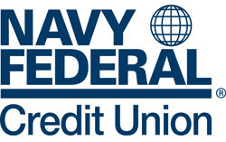3 Best Teen Checking Accounts
The best teen checking accounts come from Alliant Credit Union, Capital One and Navy Federal Credit Union.
Many or all of the products on this page are from partners who compensate us when you click to or take an action on their website, but this does not influence our evaluations or ratings. Our opinions are our own.
A teen checking account can guide your child toward better saving and spending habits and make them more familiar with banking.
Why trust NerdWallet: Our writers and editors follow strict editorial guidelines to ensure fairness and accuracy in our coverage to help you choose the financial accounts that work best for you. See our criteria for evaluating banks and credit unions.
» Need help making a decision? Here’s how to choose a teen checking account
Keep in mind that children under 18 typically need an adult to be a joint owner on the account. If you’re a joint owner, you’ll be able to access the account and monitor its transactions.
The following options are the top checking accounts for teens.
Best Teen Checking Accounts
» Want more options for high school graduates? See our list of the best checking accounts for college students
A more tech-based option: Apps with debit cards
Banks and credit unions aren’t the only places that can help your child learn how to spend and save money. Some nonbank tech firms’ kid-friendly banking apps offer debit cards linked to federally insured accounts, in partnership with banks, and more customized tools than what you’d find at a traditional bank. Some tools include allowance transfers, chore chart trackers, savings goals and parental controls. The minimum age for these apps varies from young kids to teens. See our list of the best banking apps for kids and teens.
Tips for parents
Being a joint owner on a teen account means you’ll have oversight of your child’s spending. It also means sharing responsibility for fees and other consequences, such as overdraft charges, so you’ll want to find a bank or credit union that keeps those to a minimum.
» Not sure if your kid's ready for a bank account? Explore NerdWallet’s best prepaid debit cards
If high yields are more of a priority than having an account marketed specifically toward teenagers, consider adding your child as a joint account holder on another good checking account option. (See NerdWallet’s best checking accounts.)
Last updated on March 22, 2024
Methodology
We took a close look at over 90 financial institutions and financial service providers, including the largest U.S. banks based on assets, internet search traffic and other factors; the nation’s largest credit unions, based on assets and membership; and other notable and/or emerging players in the industry. We rated them on criteria including annual percentage yields, minimum balances, fees, digital experience and more.
Financial institutions and providers surveyed are: Affirm, All America Bank, Alliant Credit Union, Ally Bank, Amalgamated Bank, America First Credit Union, American Express National Bank, Andrews Federal Credit Union, Associated Bank, Axos Bank, Bank of America, Bank5 Connect, Bank7, Barclays, Bask Bank, Bethpage Federal Credit Union, BMO, BMO Alto, Boeing Employees Credit Union, Bread Savings, BrioDirect, Capital One, Carver Federal Savings Bank, Charles Schwab Bank, Chase, Chime, CIBC U.S., CIT Bank, Citibank, Citizens, Citizens Bank, City First Bank, Climate First Bank, Commerce Bank, Community First Credit Union of Florida, ConnectOne Bank, Connexus Credit Union, Consumers Credit Union, Current, Delta Community Credit Union, Discover® Bank, E*TRADE, EverBank, Fifth Third Bank, First Foundation, First National Bank, First Tech Federal Credit Union, Flagstar Bank, FNBO Direct, Global Credit Union, GO2bank, Golden 1 Credit Union, Greenwood, Hope Credit Union, Huntington Bank, Industrial Bank, Ivy Bank, KeyBank, Lake Michigan Credit Union, Laurel Road Bank, LendingClub Bank, Liberty Bank, Live Oak Bank, M&T Bank, Marcus by Goldman Sachs, NASA Federal Credit Union, Navy Federal Credit Union, NBKC, One, OneUnited Bank, Pentagon Federal Credit Union, PNC, Popular Direct, Quontic Bank, Regions Bank, Revolut, Salem Five Direct, Sallie Mae Bank, Santander Bank, SchoolsFirst Federal Credit Union, Security Service Federal Credit Union, Securityplus Federal Credit Union, Self-Help Credit Union, Service Credit Union, SoFi, State Employees’ Credit Union of North Carolina, Suncoast Credit Union, Synchrony Bank, TAB Bank, TD Bank, Truist Bank, U.S. Bank, UFB Direct, Upgrade, USAA Bank, Varo, Vio Bank, Wells Fargo and Zynlo Bank.
NerdWallet's Best Teen Checking Accounts
Frequently asked questions
The best bank account for a teen is one that will help them learn to manage their finances and has low to no fees. Mobile and online banking options can make personal finance management more accessible to teens, and caps on ATM withdrawals or spending limits are features to consider seeking out.
Teen bank accounts can be opened online. Some teen checking accounts, such as the Capital One MONEY account, are only available online. Others may require that the child go to a branch to open their account.
Children and teens can have checking accounts, but generally, an adult must be a co-owner on the child’s account.


